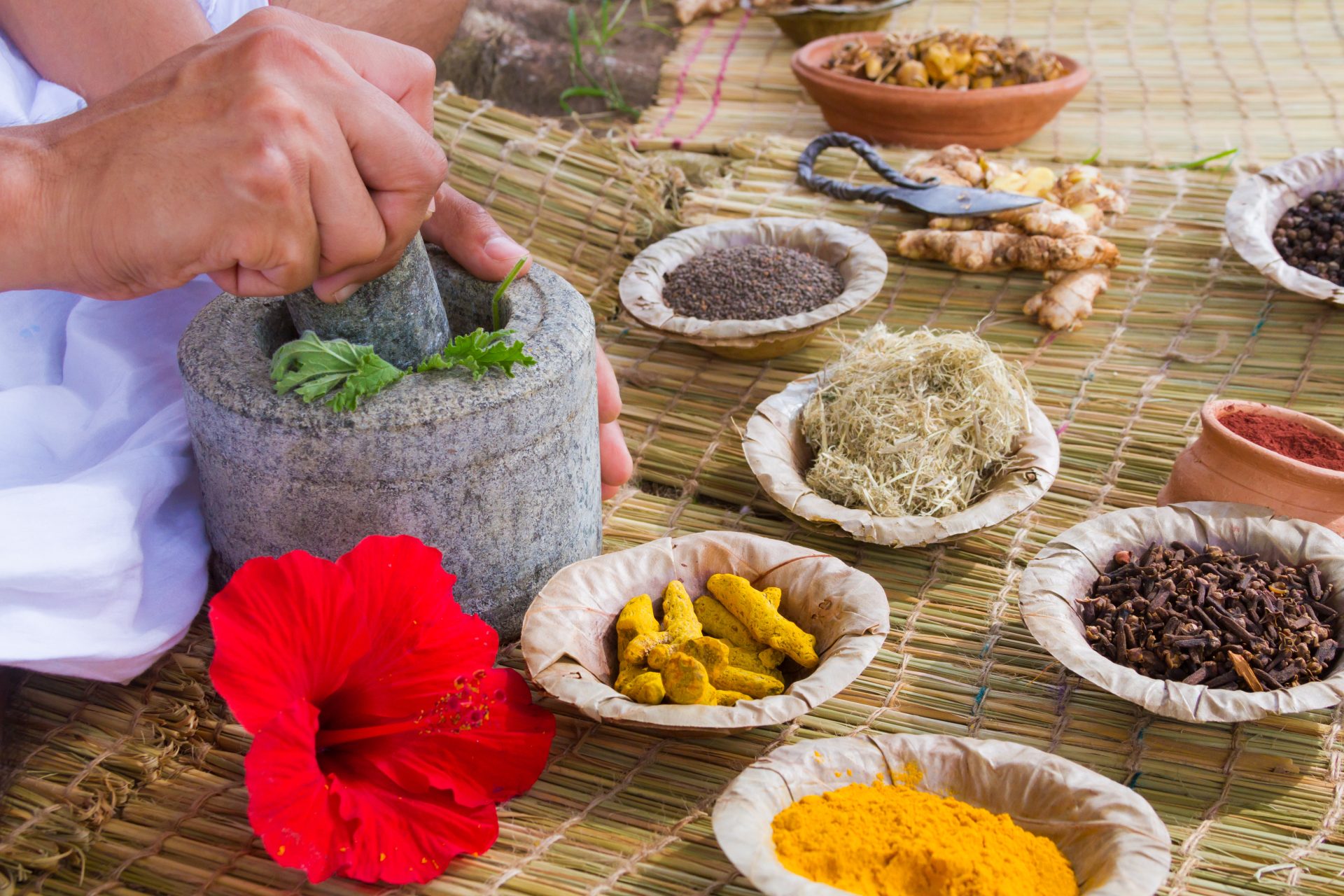Holistic Medicine
Whether you believe in holistic medicine or not, alternative therapy has become popular in the US. Ancient practices and home remedies have become an accessible and budget-friendly way to treat common health problems.
This article lists the main types of holistic medicine. Also, we discuss how each technique can benefit you below.
Here are the basic things you should know:
5 Types of
: How Do They Help?
Holistic means “whole.” It’s why most medical systems in this field treat mental health, emotional wellbeing, and physical health simultaneously. Moreover, these treatments are centuries-old. They also come from various regions of the world.
Here are the main types of holistic medicine and how they help natural healing:
Ayurveda (the Knowledge of Life)
Ayurvedic medicine happens to be one of the oldest forms of holistic medicine. Ancient ayurvedic belief systems aim to create a unity between the human body and the natural world. In other words, it focuses on bettering the body, mind, and soul.
Therefore, ayurvedic treatments use plants, herbs, and minerals to treat common health problems.
What Are the Benefits of This Type of Holistic Medicine?
It can balance doshas to promote well-being.
In addition, ayurvedic medicine helps you:
- Manage a healthy weight
- Deal with everyday stressors
- Promote healthy diet
- Support natural body functions
For instance, Triphala’s herbal blend uses three fruits; amla, haritaki, and bibhitaki. It combines the power of these plants to promote digestive health and start natural detox. A medical study backs this claim after reviewing the benefits it offers.
Moreover, these are available in tablet and powdered form.
Homeopathy
We can trace homeopathy to a 200-year-old practice that started in Germany. Its main principles include the belief that “like cures like.” In other words, natural remedies can cure diseases. In doing so, they cause healthy people to experience the same symptoms it treats.
In contrast, some think it follows the “law of minimum dose.” That’s because homeopathic creams and oral tinctures work well when you dilute them in water. They are more effective when using a few drops rather than drinking a spoonful.
Common homeopathic treatments include:
- Plant and herbal cures (like arnica for pain relief that uses mountain herb)
- Mineral-rich treatment (like white arsenic for digestive trouble and mental health problems)
These types of extracts are available in liquid form. So you can find them in ointments, balms, and tinctures.
What Are the Benefits of This Type of Holistic Medicine?
They are as follows:
- Safe usage and lesser side effects
- Natural supplementation
- An excellent way to avoid artificial chemicals and invasive treatments
Furthermore, homeopathy uses individual symptoms as the focal point for treatment.
Wellness Tip: DIY Homeopathy Remedy Kits can come in handy. Some products include a course on how this type of holistic medicine works. As a result, you can use the tiny tonics to treat everything from common cold allergies to frequent pain.
Reiki (Energy Healing)
Reiki combines rei (universal) and ki (vital energy). So the Japanese name suggests that it emphasizes energy work and healing. According to this belief, physical and emotional pain blocks energy.
The practitioner heals body pain, distress, and discomfort during a reiki session. They do this by transferring universal energy into the patients’ bodies.
The energy healer places their palm a few inches above pain points to direct universal energy. Subsequently, this helps get the bad energy out of your body.
As a result, the blockage opens up, and the energy flow resumes. During this process, you might feel a tingling sensation when that happens.
What Are the Benefits of This Type of Holistic Medicine?
According to experts, evidence shows “reasonably strong support” that reiki can help heal chronic health problems.
These include:
- Tiredness
- Stress
- Headaches
- Mild pain
- Anxiety
- Depression
At the same time, more research and details are necessary to see how it works. Therefore, we recommend reiki as a supportive remedy to treat chronic problems. It can help support natural supplements and medications you take through conventional treatment.
Naturopathy
Naturopathy combines western medicine and traditional remedies. The blended treatments consider individual needs and symptoms. Hence, we can refer to it as a more personalized technique than other forms of medicine.
Trained doctors consider daily habits and lifestyle changes that might affect your health. As a result, their treatment can include:
- Behavioral changes (like exercising, meditation, emphasis on physical activity)
- Well-balanced and nutritious diet plans for better health
- Detoxification through natural herbs and medicines
- Psychotherapy to deal with stress, grief, anxiety, and other types of mental health issues
In short, this type of holistic medicine assesses everything you do and how you react to life changes. Then they use that information to suggest treatments that help you avoid harmful habits. You can also use them to promote good habits to support natural healing.
Does Naturotherapy Work?
Research states that naturopathy can help “optimal wellness” through self-healing treatments. Likewise, it helps us become more aware of how daily actions impact health. Additionally, it teaches patients to live life in a more wholesome way. Consequently, making sure our body, mind, and spirit works in harmony.
On the whole, naturopathy uplifts natural medicine by showing us how traditional treatments work with modern science. Also, you might experience lesser side effects and find these remedies more affordable.
Chinese or Oriental Medicine
Traditional Chinese Medicine (TCM) revolves around the philosophy of “Qi” (CHI). It means “vital force life” or energy that flows through the body. Moreover, according to ancient Chinese practitioners, imbalances in the energy flow cause sicknesses. That’s because our body stops functioning well when there’s an imbalance.
Therefore, TCM aims to restore balance by reconnecting the body with nature. It often uses natural elements like earth, fire, water, and air to treat ailments.
For instance, acupuncture redirects energy flow by inserting needs at specific nerve points in the body. Consequently, the needle insertion offers natural pain relief. As a result, it can allow patients to treat mild pain without medication.
What Are the Benefits of This Type of Holistic Medicine?
They are as follows:
- A natural remedy for body pain
- It promotes relaxation and emotional wellness
- TCM can support Western medicines effectively
- There are fewer side effects
Overall, traditional Chinese medicine has many benefits for the mind and physical health. Additionally, it balances spiritual and emotional well-being. Subsequently, it forms a balance between our inner self and surrounding. As a result, the connected flow of energy protects the body from illnesses.
Wellness Tip: You should visit a certified practitioner for acupuncture therapy. That said, there are acupuncture mats available that can have similar effects. You can use these 10-15 minutes a day at home to unknot tensed muscles. Furthermore, these mats are equally effective for stress reduction and muscle recovery.
Parting Words on Holistic Medicine
In conclusion, holistic medicine consists of different types of nature-based treatments. It includes practices from different parts of the world that have been around for centuries. Therefore, Including them in your daily routine can be helpful.
However, you should always visit a doctor or trained practitioner before trying this form of medicine. It will ensure that your at-home remedies don’t mess with the pills you might be taking.
Are you interested in more wellness tips? Have a look at these natural remedies for headaches and arthritis to treat pain.


